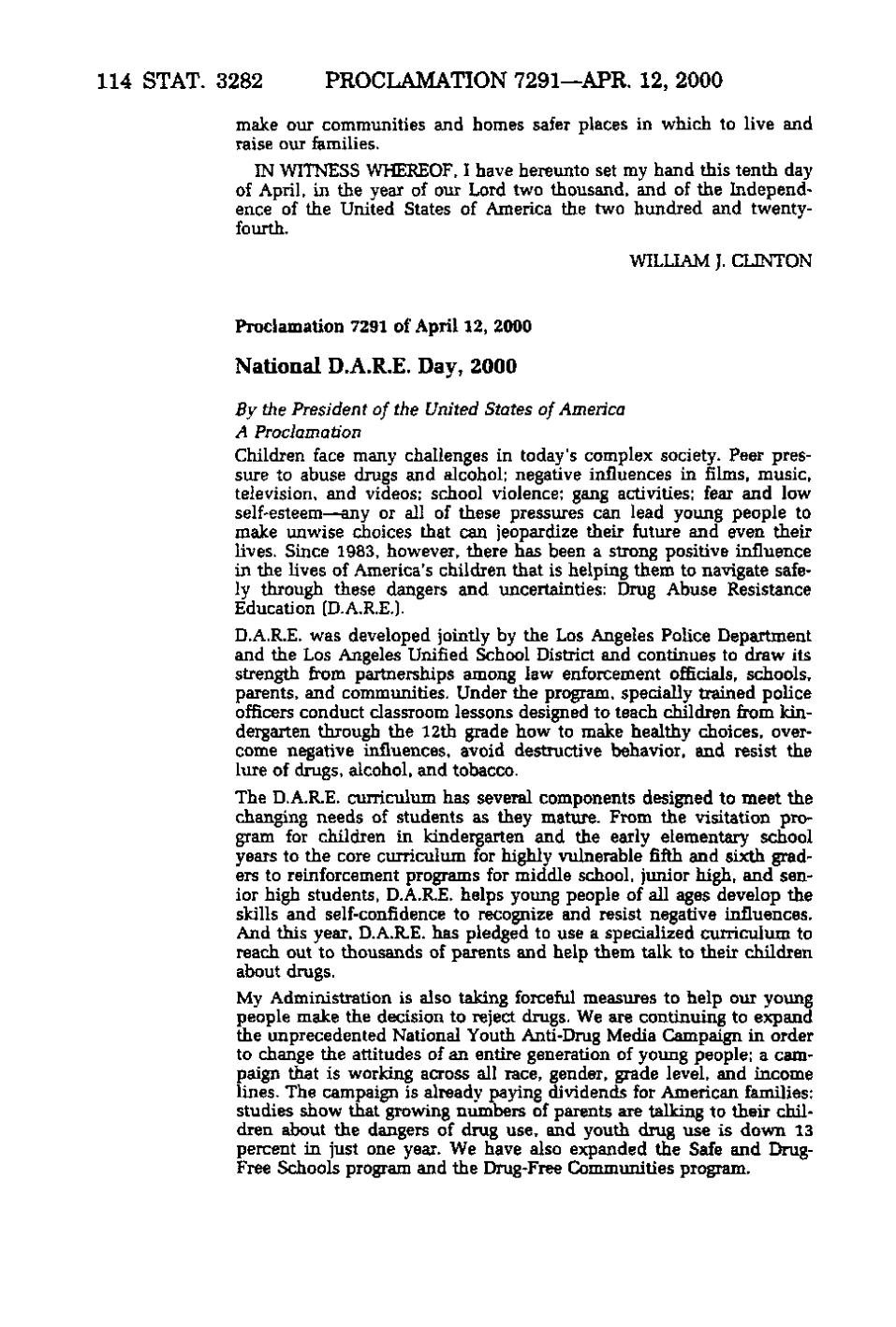114 STAT. 3282 PROCLAMATION 7291—APR. 12, 2000 make our communities and homes safer places in which to live and raise our families. IN WITNESS WHEREOF, I have hereunto set my hand this tenth day of April, in the year of our Lord two thousand, and of the Independence of the United States of America the two hundred and twenty- fourth. WILLIAM J. CLINTON Proclamation 7291 of April 12, 2000 National D.A.R.E. Day, 2000 By the President of the United States of America A Proclamation Children face many challenges in today's complex society. Peer pressure to abuse drugs and edcohol; negative influences in films, music, television, and videos; school violence; gang activities; fear and low self-esteem—any or all of these pressures can lead young people to make imwise choices that can jeopardize their future and even their lives. Since 1983, however, there has been a strong positive influence in the lives of America's children that is helping them to navigate safely through these dangers and uncertainties: Drug Abuse Resistance Education (D.A.R.E.). D.A.R.E. was developed jointly by the Los Angeles Police Department and the Los Angeles Unified School District and continues to draw its strength from partnerships among law enforcement officials, schools, parents, and communities. Under the program, specially trained police officers conduct classroom lessons designed to teach children from kindergarten through the 12th grade how to make healthy choices, overcome negative influences, avoid destructive behavior, and resist the liu-e of drugs, alcohol, and tobacco. The D.A.R.E. curriculum has several components designed to meet the changing needs of students as they mature. From the visitation program for children in kindergarten and the early elementary school years to the core curriculum for highly vulnerable fifth and sixth graders to reinforcement programs for middle school, jimior high, and senior high students, D.A.R.E. helps young people of all ages develop the skills and self-confidence to recognize and resist negative influences. And this year, D.A.R.E. has pledged to use a specialized curriculum to reach out to thousands of parents and help them talk to their children about drugs. My Administration is also taking forceful measures to help our young people make the decision to reject drugs. We are continuing to expand the unprecedented National Youth Anti-Drug Media Campaign in order to change the attitudes of an entire generation of young people; a campaign that is working across all race, gender, grade level, and income lines. The campaign is already paying dividends for American families: studies show that growing numbers of parents are talking to their children about the dangers of drug use, and youth drug use is down 13 percent in just one year. We have also expanded the Safe and Drug- Free Schools program and the Drug-Free Communities program.
�
